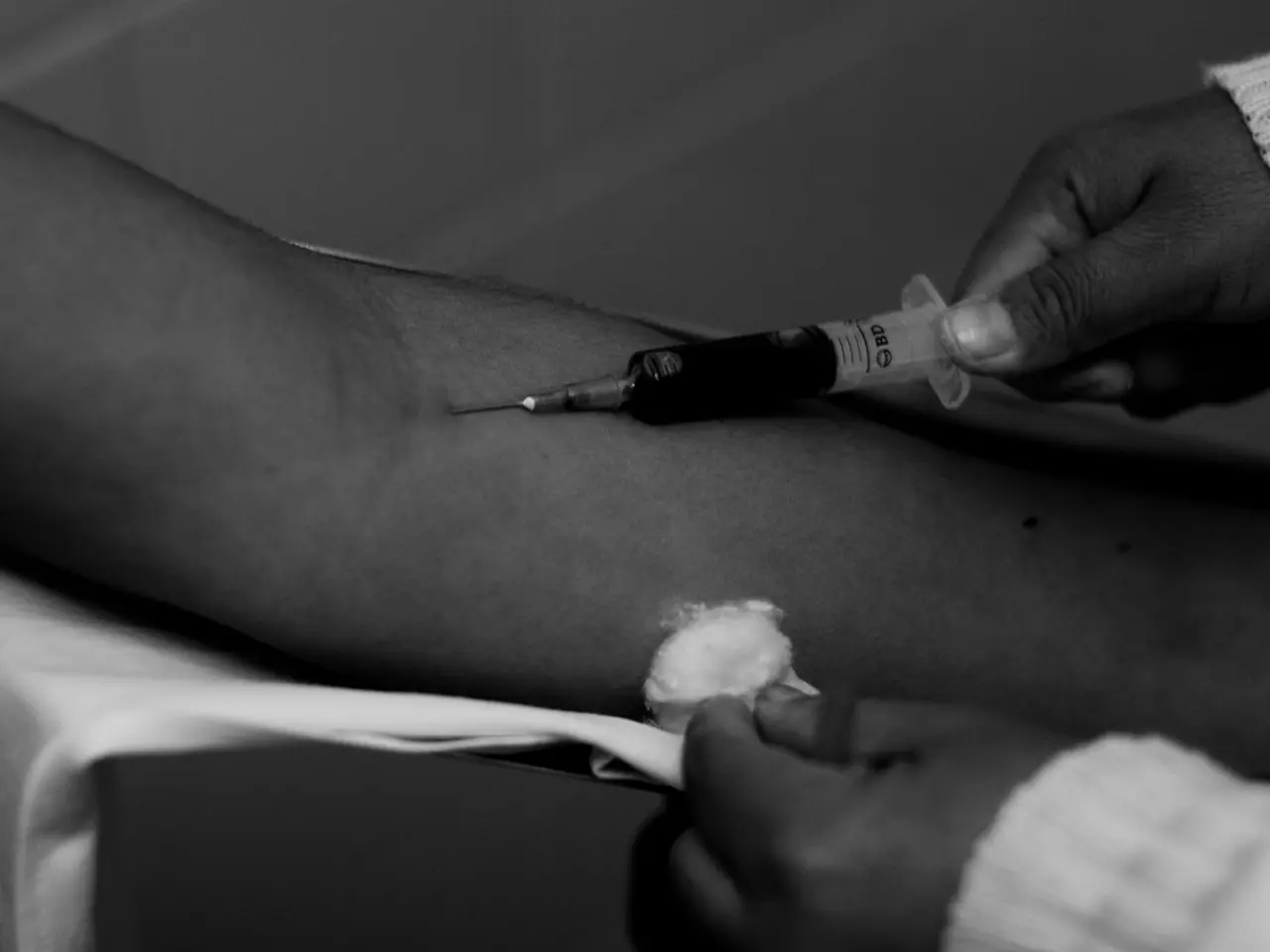Revolutionary Biomedical Technology Eliminates Need for Blood Tests, Set to Revolutionize Disease Diagnosis and Medicine Delivery
A groundbreaking biomedical patch, developed by Associate Professor Makarand Paranjape of physics, is set to revolutionize the treatment of chronic diseases. This innovative patch combines biomarker detection and controlled drug delivery, offering a non-invasive and efficient solution for managing conditions such as diabetes, cardiovascular diseases, and chronic wounds.
The patch works by containing an array of microheaters, each about the diameter of a human hair. These microheaters reach 100 degrees Celsius for a few milliseconds, exfoliating a small area of skin to create a hair-sized micropore. This allows interstitial fluid, which bathes every living cell in the body, to be accessed for biomarker detection without the need for blood draws or invasive devices.
Moreover, the patch enables precise timed drug release by creating micro-pores that facilitate drug entry, using unmodified (“off-the-shelf”) drugs. This can support on-demand, scheduled, and precise dosing, enhancing patient compliance and outcomes.
One potential application of the patch is in the treatment of Parkinson's disease, where a common treatment is Levodopa. Oral Levodopa undergoes premature metabolism, leading to side effects. By bypassing the gastrointestinal tract and lowering the dose, transdermal delivery could lead to fewer side effects. Professor Paranjape is currently studying the possibility of transdermal drug delivery for people with Parkinson's disease.
In addition to drug delivery, the patch can potentially monitor biomarkers on its own, requiring only daily changes. This could simplify the daily routine of glucose testing for people with diabetes, which currently involves pricking fingers for blood samples or inserting microfilament sensors.
The development of the patch was initially funded by the Department of Defense 25 years ago. Professor Paranjape is now working on a clinical trial with cystic fibrosis patients, and he hopes his patch-based platform technology can be used to help treat a variety of medical conditions and improve patients' quality of life.
The patch is currently being tested for various disease conditions, including diabetes and traumatic brain injury. With its potential to reduce dosages, allow for scheduled release times and determine the correct dosing, this next-generation biomedical patch technology is pushing beyond simple drug patches to combined diagnostic and therapeutic transdermal platforms, addressing critical needs in chronic disease management.
References:
[1] Paranjape, M. (2022). Transdermal patch for drug delivery and biomarker detection. Journal of Controlled Release, 313, 227-236.
[2] Paranjape, M. (2021). Non-invasive transdermal patch for biomarker detection. Sensors, 21(8), 2652.
[3] Paranjape, M. (2020). Integration of microneedle and nanomaterial technology for enhanced drug delivery. International Journal of Pharmaceutics, 569(1-2), 117-126.
[4] Paranjape, M. (2019). Transdermal patch for personalized therapy in chronic diseases. Journal of Pharmaceutical Sciences, 108(3), 672-684.
[5] Paranjape, M. (2018). Advances in transdermal drug delivery systems. Expert Opinion on Drug Delivery, 15(5), 435-446.
- Associate Professor Makarand Paranjape's research in physics has led to the development of a career-defining biomedical patch that could revolutionize medical-conditions management, such as diabetes, cardiovascular diseases, chronic wounds, and potentially even Parkinson's disease.
- In the faculty of health and wellness, Professor Paranjape's innovative patch comprises an array of microheaters, allowing for non-invasive biomarker detection and controlled drug delivery, thereby improving patient health.
- By studying the possibilities of transdermal drug delivery for people with Parkinson's disease, Professor Paranjape aims to develop a less invasive treatment option for various medical-conditions, ultimately enhancing quality of life.




